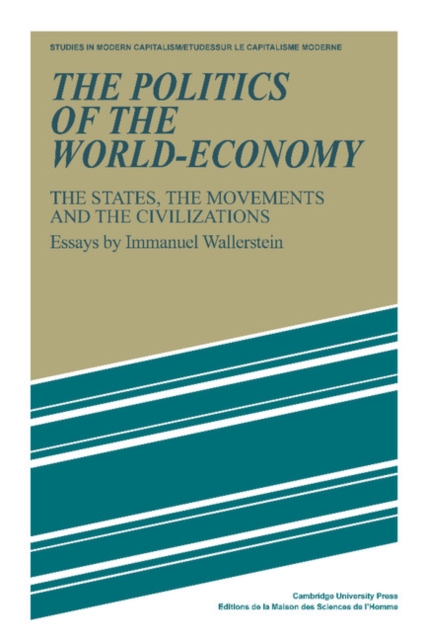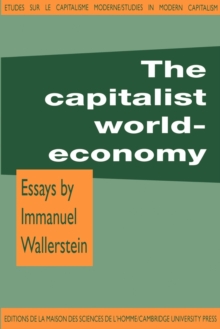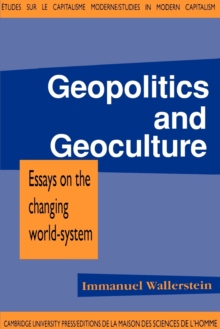
The Politics of the World-Economy : The States, the Movements and the Civilizations Paperback / softback
by Immanuel (State University of New York, Binghamton) Wallerstein
Part of the Studies in Modern Capitalism series
Paperback / softback
Description
In these essays, written (with one exception) between 1978 and 1982, Immanuel Wallerstein elaborates on the political and theoretical implications of the world-systems perspective outlined in his celebrated books The Modern World-System and The Capitalist World-Economy.
Whereas those books centred on the historical development of the modern world-system, the essays in this volume explore the nature of world politics in the light of Wallerstein's analysis of the world-system and capitalist world-economy.
Throughout, the essays offer new perspectives on the central issues of political debate today: the roles of the USA and the USSR in the world-system, the relations of the Third World states to the capitalist 'core', and the potential for socialist or revolutionary change.
Different sections deal with the three major political institutions of the modern world-system: the states, the antisystemic movements, and the civilizations.
The states are a classic rubric of political analysis.
For Wallerstein, the limits of sovereignty are at least as important as the powers - these limits deriving from the obligatory location of the modern state in the interstate system.
Social movements are a second classic rubric. For Wallerstein, the principal questions are the degree to which such movements are antisystemic, and the dilemmas state power poses for antisystemic movements.
Civilizations, in contrast, are not normally seen as a political institution.
That however is for Wallerstein the key to the analysis of their role in the contemporary world, and thereby a key to understanding the politics of social science.
Information
-
Only a few left - usually despatched within 24 hours
- Format:Paperback / softback
- Pages:200 pages, Worked examples or Exercises
- Publisher:Cambridge University Press
- Publication Date:17/05/1984
- Category:
- ISBN:9780521277600
Information
-
Only a few left - usually despatched within 24 hours
- Format:Paperback / softback
- Pages:200 pages, Worked examples or Exercises
- Publisher:Cambridge University Press
- Publication Date:17/05/1984
- Category:
- ISBN:9780521277600










